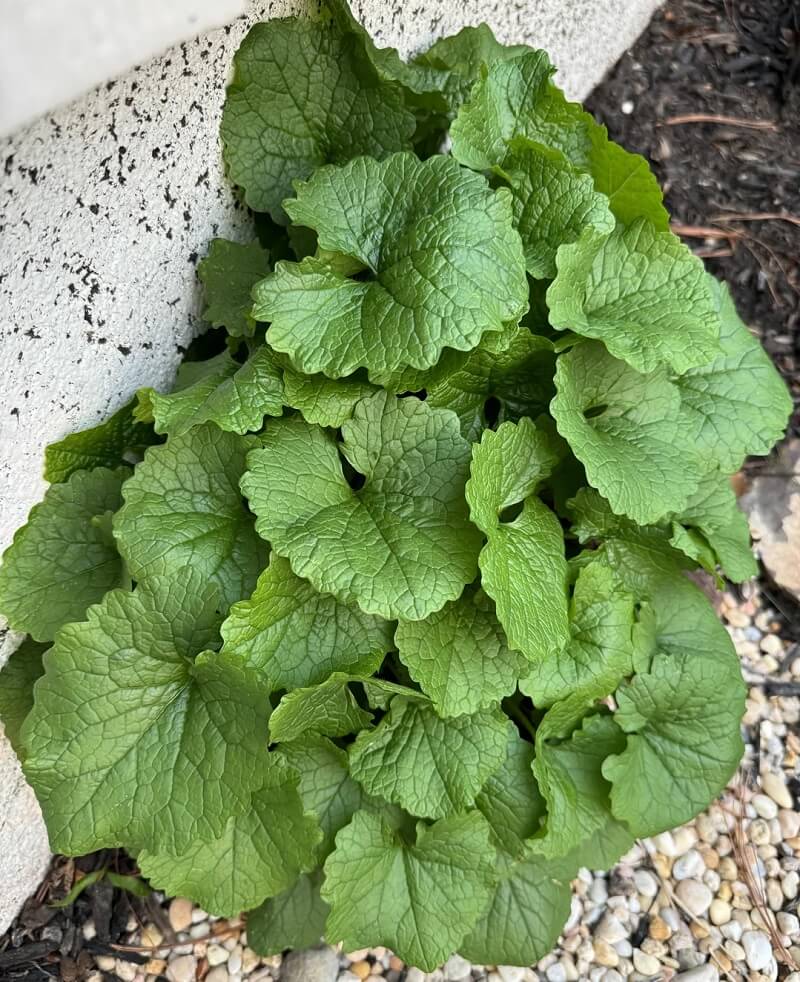One New Jersey home gardener recently posted a few photos on the r/WhatsThisPlant subreddit in an attempt to figure out if the plant they spotted growing near their home was anything to worry about. As it turned out, it was a good thing they did.
"Growing all together clumped against the house," the poster wrote. "What is this? Invasive? Should I pull it out?"

The expert members of the subreddit were quick to identify the plant as garlic mustard. Despite its delicious-sounding name, it's not something you want in your yard, as it is native to parts of Europe and Asia — but considered invasive in North America.
Garlic mustard "spreads its seeds in the wind and gains a foothold in fields and forests by emerging earlier in spring than many native plants. By the time native species are ready to grow, garlic mustard has blocked their sunlight and outcompeted them for moisture and vital nutrients," The Nature Conservancy explained. "This advantage is only strengthened as climate change continues to alter seasons faster than native plants can adapt."
Several of the Redditors had advice on how to deal with the invasive plant.
"Wear gloves, get as much of the root as you can. DO NOT compost it or throw it out as yard waste while green. Burn it, or break the stems and let it sit out in the sun on cement or in the bottom of a dry bucket until it's dry and crispy. (If it's not so windy it will blow away)," wrote one.
"'Wildly invasive' cannot be over emphasized. Those who would defend garlic mustard as a docile edible have never seen a woodland transformed into a food desert by this plant," wrote another. "Garlic mustard should be terminated with extreme prejudice. Native birds will thank you."
Many other commenters shared their ideas for cooking the garlic mustard; blending it into a spring pesto was the most popular suggestion. As an above commenter alluded to and the name implies, garlic mustard is indeed edible, although The Nature Conservancy warned that it should be harvested when it is young and less bitter, as "older plants need to be cooked thoroughly as they contain cyanide."
Although this home gardener clearly did not plant the garlic mustard, it is important to always keep in mind, when planting new things in your garden, to do your research first and ensure that they are native species. Native species support local pollinators and your ecosystem and are already adapted to live alongside one another in harmony.
Join our free newsletter for easy tips to save more and waste less, and don't miss this cool list of easy ways to help yourself while helping the planet.









